-
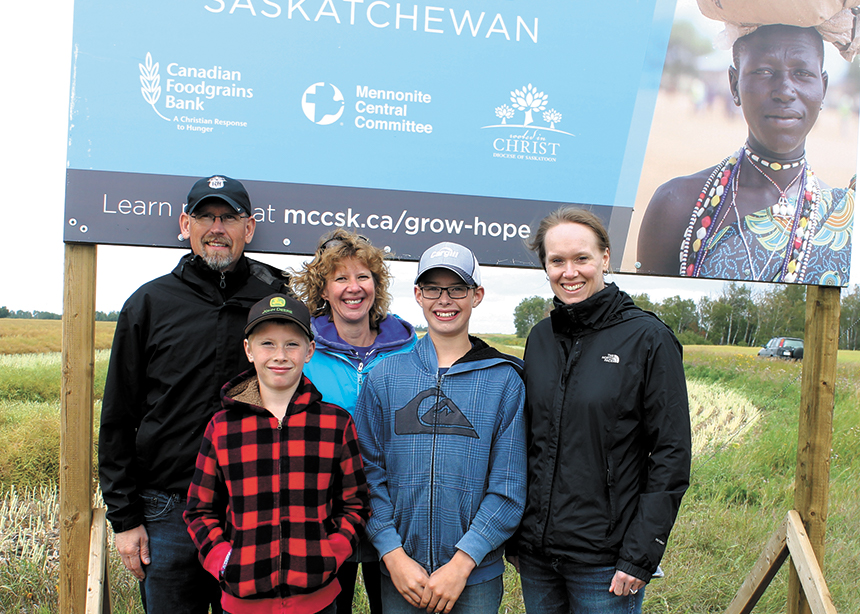
Growing hope through partnerships
“I’ve never been this close to agriculture before,” said Ingrid Lamp. “It’s quite exciting.” Lamp and her husband travelled four hours from their home in Swift Current to attend the Grow Hope Saskatchewan Field Day. The Aug. 25 event saw upwards of a hundred Canadian Foodgrains Bank supporters gather in Rosthern for a barbecue lunch…
-
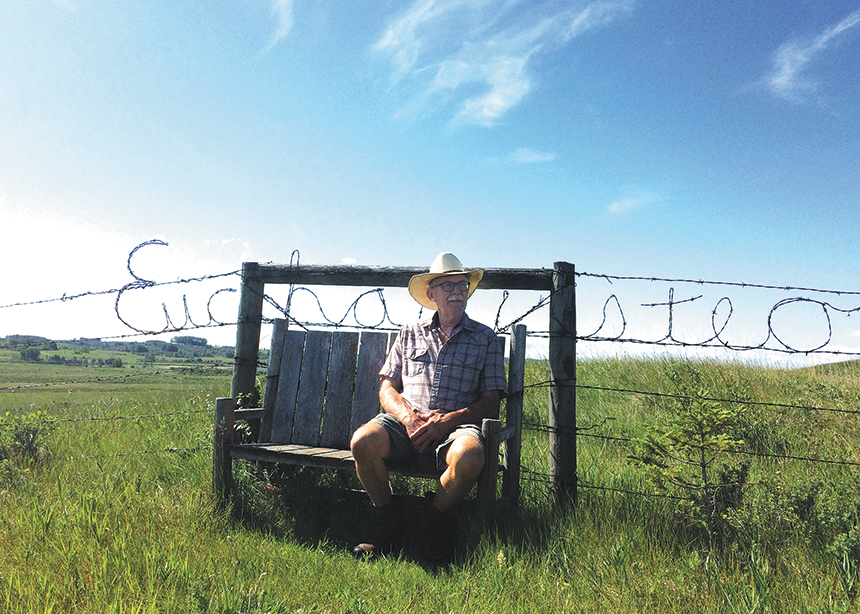
A perfect spot for gratitude…on the farm
Growing up, I never wanted to be a farmer. It seemed like farm machinery always had precedence over a new couch, curtains or nice shoes. Then I met my husband Bob at Rosthern Mennonite Collegiate in Saskatchewan, and he wanted to be a veterinarian. Naively, I never thought this would involve farming, so I taught…
-

Teaching with Talking Books
Teaching technical information to people who are mostly not literate can pose serious challenges. But if use of books isn’t helpful, Talking Books can get the message across. The Greater Rural Opportunities for Women (GROW) project of Mennonite Economic Development Associates (MEDA) has made wide use of Talking Books through a partnership with Literacy Bridge,…
-
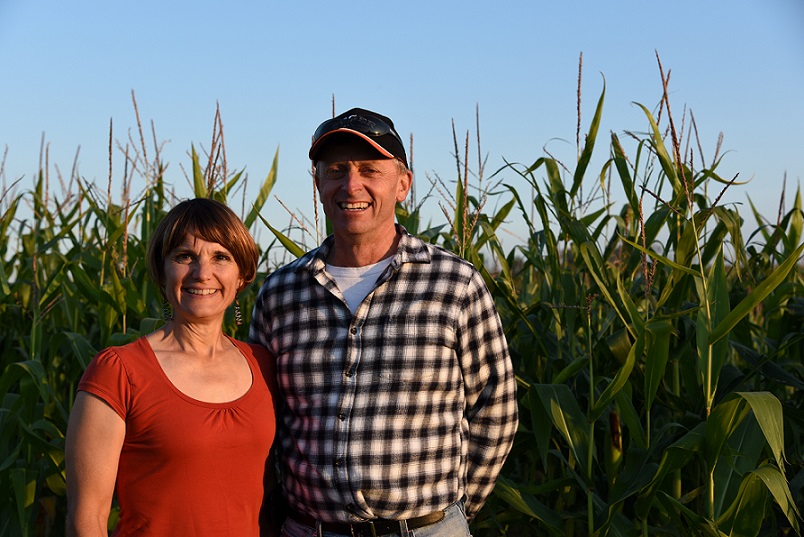
Bridging the rural-urban divide to help end world hunger
Fifteen acres of wheat and a good cause—that’s what brought nearly 200 people together in Pembina Crossing, Man., in June 2018. Some drove two hours from Winnipeg, others five minutes from their rural homes. Most came from Anglican church communities in Winnipeg. “It was a moment where I felt like I was part of something…
-
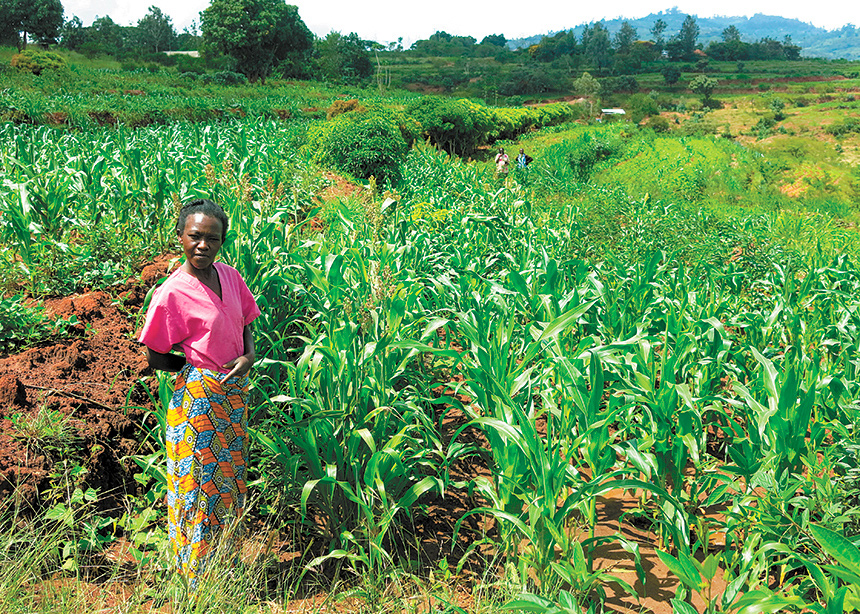
Foodgrains Bank brews climate storm on Twitter
The Canadian Foodgrains Bank walks a fine line on climate and walks it well. A recent and rare slip demonstrated the tensions it, like the rest of us, must navigate. The Hill Times, an Ottawa newspaper aimed at political insiders, wanted articles on global food issues. The Foodgrains Bank helped arrange for such articles by…
-
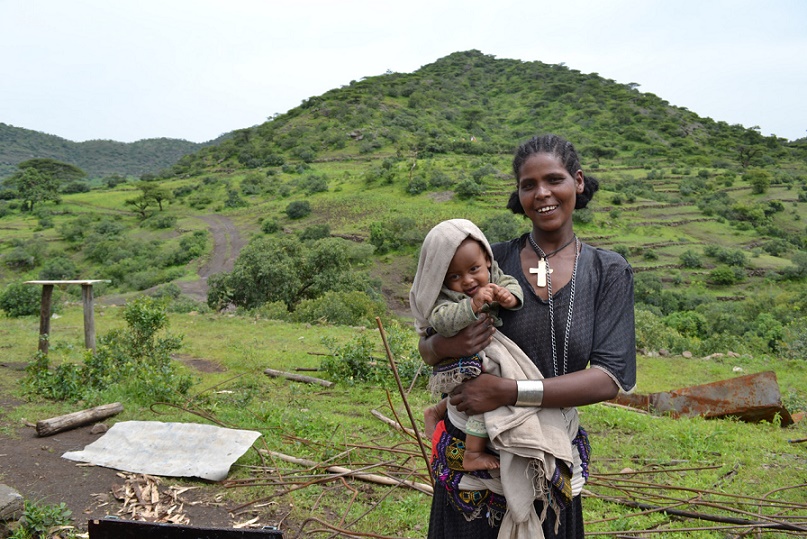
A tale of two hills outside Lalibela
Two hills, sitting side by side in a valley outside of Lalibela, Ethiopia, have a story to tell. One hill is brown, its vegetation stripped away by livestock and deforestation. Deep gullies are carved through the hillside, where the unprotected soil was washed away by the rain. Trees have disappeared, cut down for firewood. Look…
-

The ordinary lives of ordinary Mennonites
Seven Points on Earth, Paul Plett’s documentary about Mennonite farmers around the world, premiered at Winnipeg’s Real to Reel Film Festival on Feb. 21, 2018. The hour-long film tells the story of seven Mennonite farming families in seven different countries: Canada (Manitoba), United States (Iowa), The Netherlands, Zimbabwe, Indonesia, Bolivia and Russia (Siberia). Plett followed…
-
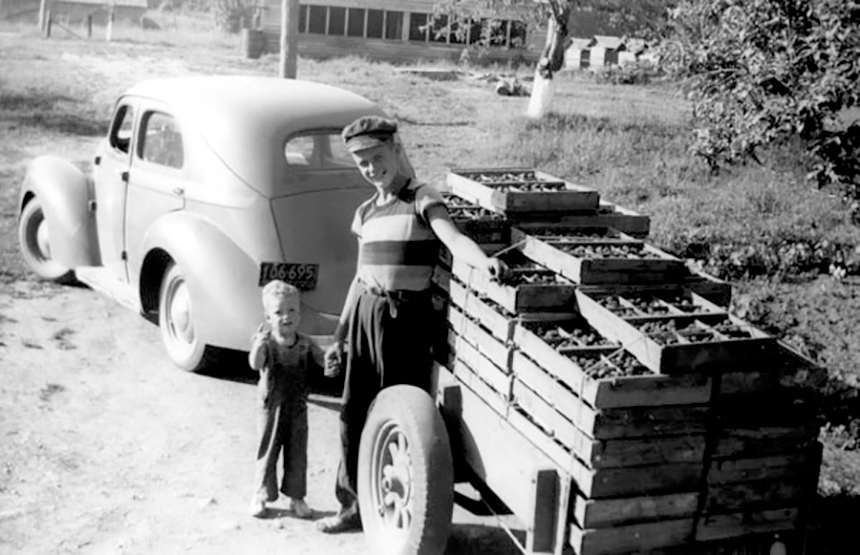
Hauling strawberries
In February 1928, the first trainload of Mennonite farmers from the Prairies arrived in Yarrow, British Columbia, with prospects of farming the newly accessible land in the Fraser Valley. The introduction of raspberry and strawberry farming in the early 1930s increased the viability of these farms. The photo shows Len Doerksen (b. 1936) with his…
-

‘The level of mechanization was amazing to witness’
For John Mbae, a Canadian Foodgrains Bank conservation agriculture technical specialist based in Kenya, a visit to the Canadian Prairies was informative and inspiring. “I had the privilege of staying with a farm family in Saskatchewan,” says Mbae. “Although their farm operation was very large and profitable, they were very approachable and hospitable to me,…
-
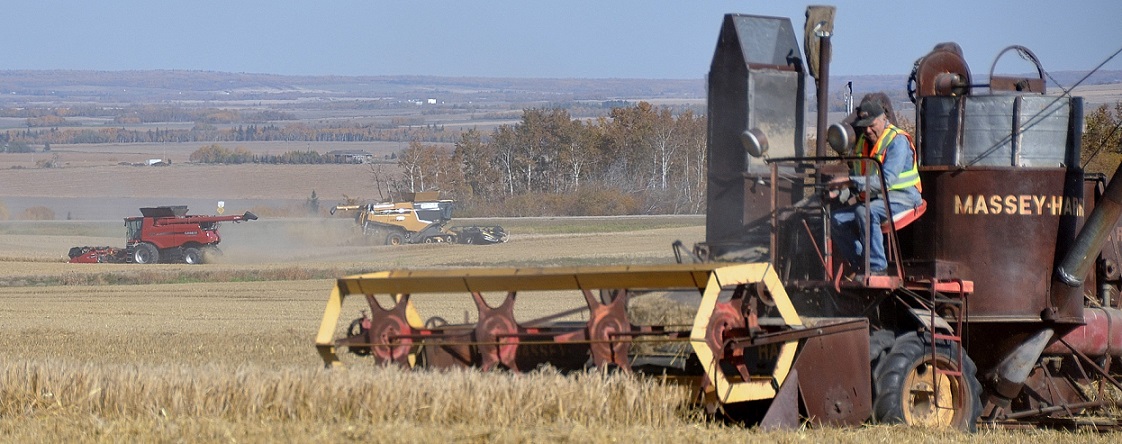
Growing projects celebrate a successful 2017
The Canadian Foodgrains Bank likes to talk about its “farm”—the thousands of hectares across Canada, from P.E.I. to B.C., that are planted by community growing projects to raise funds for the work of ending global hunger. In 2017, the “farm” was 6,500 hectares of land that grew crops such as wheat, barley, corn, pulses, soybeans,…
